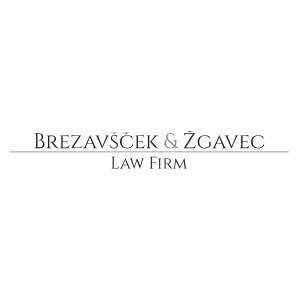Best Equity Capital Markets Lawyers in Slovenia
Share your needs with us, get contacted by law firms.
Free. Takes 2 min.
Or refine your search by selecting a city:
List of the best lawyers in Slovenia
About Equity Capital Markets Law in Slovenia
Equity Capital Markets (ECM) law in Slovenia governs the mechanisms and processes by which companies raise funds by issuing shares or other equity instruments to the public or private investors. The Slovenian equity capital market is an essential part of the broader financial system, facilitating investment, growth, and economic development. Key activities regulated within ECM include initial public offerings (IPOs), private placements, rights issues, and secondary offerings. These transactions usually take place through the Ljubljana Stock Exchange (Ljubljanska borza, d.d.), which is Slovenia's main regulated securities market.
Why You May Need a Lawyer
Engaging a legal expert with experience in Equity Capital Markets can be crucial for several reasons. Some typical situations where legal assistance is recommended include:
- Launching an IPO or listing a company on the stock exchange
- Structuring and executing private placements of equity
- Navigating the regulatory requirements set by the Slovenian Securities Market Agency (Agencija za trg vrednostnih papirjev) and EU laws
- Preparing or reviewing prospectuses and other disclosure documents
- Handling public takeovers or mergers involving listed companies
- Ensuring ongoing compliance with reporting and corporate governance obligations
- Managing shareholder relations and disputes regarding equity matters
Legal professionals can help interpret complex regulations, reduce the risk of non-compliance, and safeguard the interests of issuers, investors, and other stakeholders.
Local Laws Overview
Slovenia’s equity capital market is regulated by a combination of national and European Union laws. The most relevant domestic laws include the Financial Instruments Market Act (Zakon o trgu finančnih instrumentov, ZTFI-1), the Companies Act (Zakon o gospodarskih družbah, ZGD-1), and specific rules issued by the Ljubljana Stock Exchange.
The Financial Instruments Market Act implements EU directives such as the Markets in Financial Instruments Directive (MiFID II) and the Prospectus Regulation. It lays down the rules for the public offering of securities, obligations related to disclosure, market abuse, and the functioning of intermediaries like brokers and investment firms.
The Securities Market Agency is responsible for supervision and enforcement of securities market regulations, including the approval of prospectuses for public offers and listings. Companies seeking to raise equity capital must also comply with anti-money laundering legislation and corporate governance standards. The regulatory landscape ensures fair treatment of investors, market transparency, and protection from financial crime or manipulation.
Frequently Asked Questions
What is an IPO and how is it regulated in Slovenia?
An Initial Public Offering (IPO) is when a company offers its shares to the public for the first time. In Slovenia, IPOs are regulated by the Financial Instruments Market Act and supervised by the Securities Market Agency, which must approve the prospectus before shares can be issued or traded on the Ljubljana Stock Exchange.
What is a prospectus and when is it required?
A prospectus is a legal document that provides details about an investment offering to the public. In Slovenia, a prospectus is mandatory for any public offering of shares unless an exemption applies. It ensures transparency and helps protect potential investors by providing relevant financial and business information.
Can foreign companies list their shares on the Ljubljana Stock Exchange?
Yes, foreign companies can list their shares on the Ljubljana Stock Exchange, provided they meet the exchange’s requirements and relevant Slovenian and EU regulations. They must also seek approval of their prospectus from the competent authority.
What are the main regulatory bodies overseeing ECM in Slovenia?
The main regulatory bodies are the Securities Market Agency (ATVP) and the Ljubljana Stock Exchange. The Bank of Slovenia also has certain supervisory roles, particularly in relation to credit institutions.
What are the ongoing obligations for listed companies?
Ongoing obligations include regular and ad hoc reporting of financial statements, disclosure of significant developments, compliance with corporate governance codes, and adherence to insider trading and market abuse regulations.
What are the penalties for non-compliance with ECM regulations?
Non-compliance can result in administrative sanctions, fines, and in severe cases, suspension of trading or delisting of the company’s shares. Individuals such as directors may also face personal liability for breaches.
How are shareholders protected in equity offerings?
Slovenian law contains provisions to protect shareholders, such as pre-emption rights in certain capital increases, mandatory disclosure of significant shareholdings, and clear procedures for public takeovers to ensure fairness and transparency.
What is the difference between a public and private equity placement?
A public placement offers shares to the general public, usually requiring a prospectus and regulatory approval. A private placement involves offering shares to a limited group of investors, often with fewer disclosure requirements and exemptions from some regulatory standards.
How long does the IPO process usually take in Slovenia?
The IPO process typically takes several months, depending on the complexity of the business, regulatory approvals, and preparation of the necessary documentation, including the prospectus.
What are the main steps to prepare for an ECM transaction?
Key steps include: engaging legal and financial advisors, conducting due diligence, preparing the prospectus or transaction documentation, obtaining regulatory approval, and coordinating the logistics of the offering and listing with the stock exchange.
Additional Resources
For further information and assistance regarding Equity Capital Markets in Slovenia, consider the following organizations and resources:
- Securities Market Agency (Agencija za trg vrednostnih papirjev - ATVP) - The main regulatory authority for securities markets
- Ljubljana Stock Exchange (Ljubljanska borza, d.d.) - The primary equity market in Slovenia
- Chamber of Commerce and Industry of Slovenia (Gospodarska zbornica Slovenije) - Provides guidance and support for businesses
- Slovenian Bar Association (Odvetniška zbornica Slovenije) - Directory of qualified lawyers specializing in corporate and capital markets law
- Official Gazette of the Republic of Slovenia (Uradni list RS) - For up-to-date legislation and official notices
Next Steps
If you are considering raising capital or investing in equity markets in Slovenia, it is advisable to seek tailored legal advice early in the process. Start by defining your objectives and gathering available information about your company or investment targets. Prepare a list of questions and concerns for your legal advisor. Contact a lawyer or legal firm experienced in equity capital markets to discuss your needs, ensure compliance with regulatory requirements, and avoid common pitfalls. Your legal advisor can guide you through each step of the process, help with documentation, represent you before regulators, and provide crucial support through negotiations and transactions.
Whether you are a company seeking to issue shares or an investor interested in participating in Slovenia’s equity markets, having qualified legal counsel is the best way to safeguard your interests and achieve your goals in this complex and highly regulated area.
Lawzana helps you find the best lawyers and law firms in Slovenia through a curated and pre-screened list of qualified legal professionals. Our platform offers rankings and detailed profiles of attorneys and law firms, allowing you to compare based on practice areas, including Equity Capital Markets, experience, and client feedback.
Each profile includes a description of the firm's areas of practice, client reviews, team members and partners, year of establishment, spoken languages, office locations, contact information, social media presence, and any published articles or resources. Most firms on our platform speak English and are experienced in both local and international legal matters.
Get a quote from top-rated law firms in Slovenia — quickly, securely, and without unnecessary hassle.
Disclaimer:
The information provided on this page is for general informational purposes only and does not constitute legal advice. While we strive to ensure the accuracy and relevance of the content, legal information may change over time, and interpretations of the law can vary. You should always consult with a qualified legal professional for advice specific to your situation.
We disclaim all liability for actions taken or not taken based on the content of this page. If you believe any information is incorrect or outdated, please contact us, and we will review and update it where appropriate.
Browse equity capital markets law firms by city in Slovenia
Refine your search by selecting a city.

















